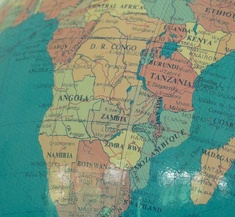
Five Islands of Africa - Part 3
First published: Sunday August 21st, 2022
Report this blog
Introduction
Continuing our noble quest to find the partially unknown little islands of the world, we stumble along the coast of Africa from the historically named "Slave Coast" to the "Skeleton Coast". What is it with Africa and its coasts ?
The Skeleton Coast was so named because of the skeletons of the many whales and seals that were left by the whaling industry, although more recently it is used to describe the many shipwrecks caused by the dense fogs that plague the shoreline.
Anyway, on to the islands. And we start this time in Nigeria......
Gberefu Island (Nigeria)
Gberefu is located near to Lagos in the town of Badagry. It is close to the border with Benin, in fact it is part of the larger island of Toungegi Island that straddles the two nations.
Gberefu Island is also known as the "Point of No Return" for it was here that many slaves left their homes in Africa to lands far away to conditions they feared. It is thought that over 10,000 natives were sent from here over the years.
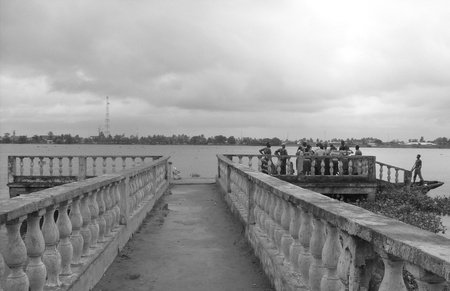
The port was opened in 1473 during the Trans Atlantic Slave Trade era and flourished until around 1880. Nowadays it is a tourist destination visited by historians and adventurers. There was a resort built but this is now abandoned. In the right hand picture below you can see the two pillars that are slightly slanted symbolising the slave route.
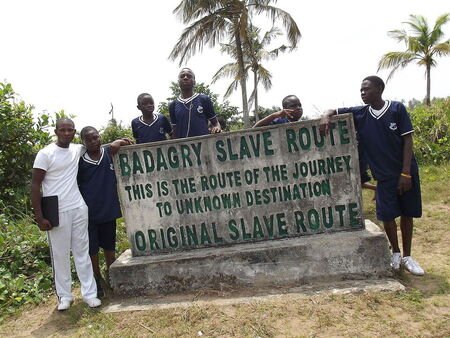
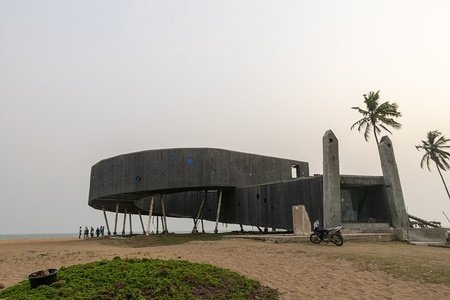
This travelog has some decent pictures and description of a visit to the area.
Corisco (Equatorial Guinea)
Corisco, also known as Mandj or Mandyi, is an island at the end of the Rio Muni estuary that marks the border between Equatorial Guinea and Gabon. It's name apparantly derives from the Portugese word for lightning, although that is relâmpago, so if anyone knows why, let me know in the comments.
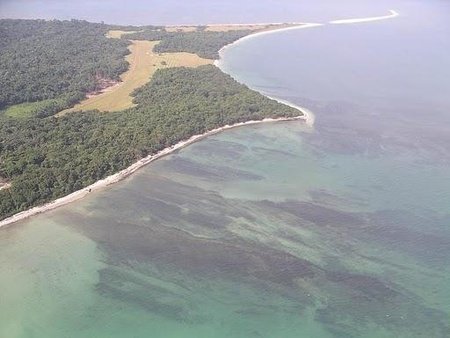
From archaeological evidence it is known that the island was heavily settled during the Iron Age (50BC-1400AD), although by the time Portugese explorers arrived in 1471 the island was mostly uninhabited.
It remained empty for over 300 years until settled by the Benga people, who were hoping for trade with Europe. Then under the control of the Spanish until it was ceded to Eq.Guinea on it's independance.
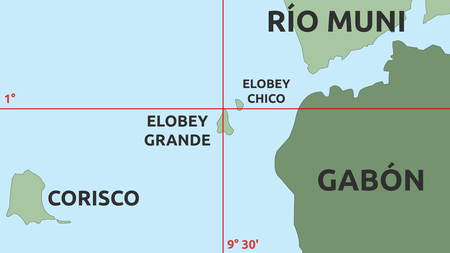
Following the discovery of more oil reserves in the area, Gabon has disputed the sovereignty of the island. A new airport was opened in 2011 with the aim of promoting tourism to the island.
The island can be reached by air from the mainland city of Bata, or via a two hour boat journey from the same city.
This website has some more photos of the island.
Ilhéu das Rolas (Sao Tome and Principe)
The island of Rolas is a small islet just south of the main island of Sao Tome that is just across the Rolas Channel. It's population is a mere 76 people, but this is boosted by tourists staying at the resort on the island.
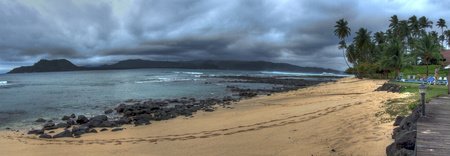
It was discovered during a survey by the Portugese navy between 1915 and 1918, that the island sits directly upon the equator. As such it can be said that Sao Tome straddles the equator when, in actual fact, only the tiniest part of the nation is in the Southern Hemisphere.
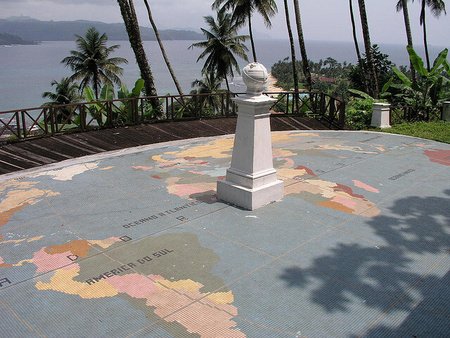
The island can only be reached by ferry from Ponte Baleia on Sao Tome. The crossing takes around thirty minutes.
This travelogue has an excellent review of a visit to the island.
Tigres Island (Angola)
Tigres Island has only been an island for slightly longer than I have been in existence. Prior to March 1962 (I was born in November of that year) it was a peninsula with a thriving fishing community. But, during the severe storm of that night, the waters of the Atlantic Ocean cut through the isthmus thereby severing the peninsula and creating the island.
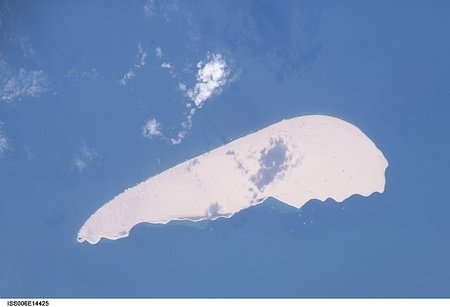
The fishing village was cut off overnight due to the storm also destroying the pipeline that supplied the fresh water. The community carried on with water being delivered on barges and held out until 1974 when the Angolan Civil War forced many of the inhabitants, mostly Portugese, to leave. The village remains as a ghost town. There have been several ideas for the island over the years, a prison, fishing harbour with desalination plant, and a Las Vegas style luxury resort. None have been successful.
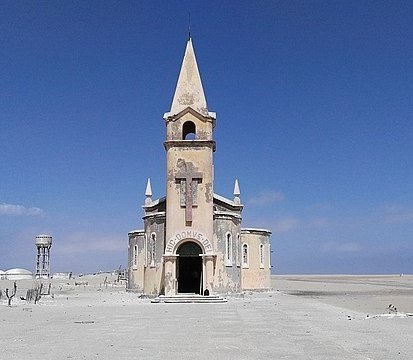
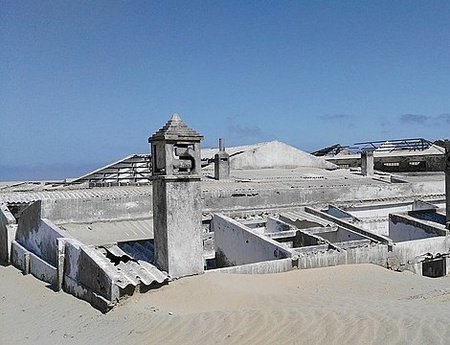
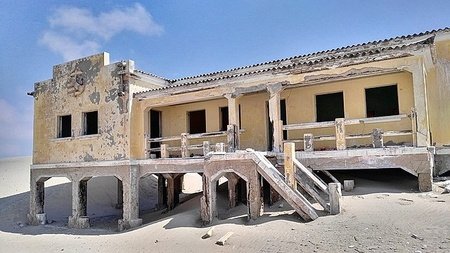
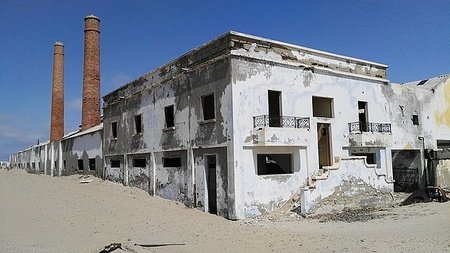
Getting to the island is more of an expedition that a trip. It is not the easiest journey. It can only be attempted using 4x4 vehicles and only at low tide. It involves a beach ride between the dunes and ocean and then a boat ride across. You have to take the boat with you. Then you have to camp overnight on the island to return at low tide the following day.
This account of a journey to the island is an excellent read.
Halifax Island (Namibia)
Halifax is one of the islands of the group known as the Penguin Islands. It is situated just a short distance from the Diamond Coast near to the town of Luderitz. It is an important breeding site for African Penguins.
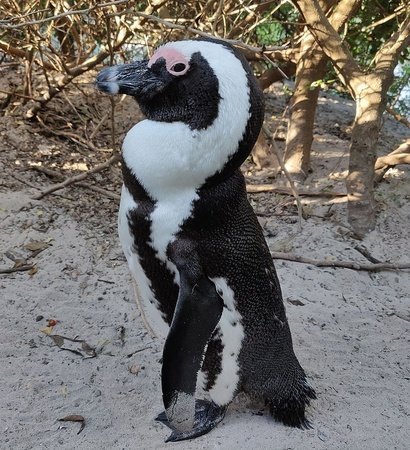
A British captain, Charles Forsyth, claimed the island for Britain when he landed on the island in 1866. A lease was given to a company to mine guano on the island the following year. At the time the penguin guano was 120 feet thick, mining continued until 1949. Many of the building and factories are still present on the island, although in various stages of delapidation. Many empty building are now used by penguins as breeding grounds despite the population of the birds having halved since 1970. The Namibian government oversees the seabird population and manages the island. Dolphins and seals are also known to inhabit the waters around the island.
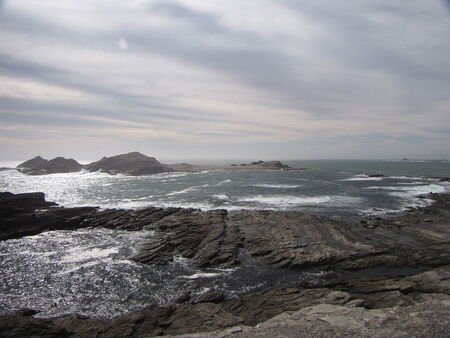
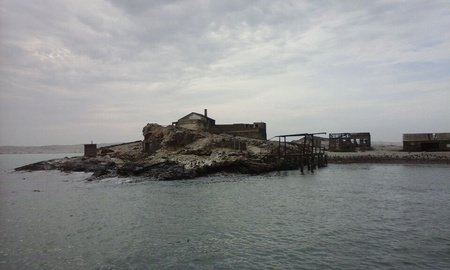
The island is out of bounds to the public, however a tour around the island can be taken on a catamaran from Luderitz.
This tourism website has a report on the boat journey and more photos.
Summary
So that's that. Episode 3 of Africa written and shortly to be published, although obviously, if you're reading this that last statement is obsolete.
Anyways, tot volgende keer my vriende, as they say in Afrikaans. Until next time my friends. See you in South Africa.

Rola (pronounce: /ˈʁɔ.la/) can also be the third person singular verb (“Ele/ela”, and also used with “você”), present indicative of the ver “rolar” (roll), and also the second person singular (“Tu,” and also “você” sometimes), on the affirmative imperative.
But “rola” (also with the bird’s pronounce) in the wrong context and different meaning can also mean a pe... (
yep not joking). But assuming there are two other different meanings, and it’s only usual to the informal language/swearing, is easy to get that “Ilhéu das Rolas” is derived from the Streptopelia birds. So, you don’t have to worry with absolutely nothing!By the way the decoding of these pronunciations can be found here!
the most of Brazilian laugh at this ;-;, and you’ll never get banned by a non-native language misunderstanding.Btw it was really great to read. Maybe Caribbean or Asian islands next? :)
In answer to your suggestion...I plan to finish Africa, then move onto Asia, parts of Oceania (The Pacific I will do later), and then the Americas.
Might take me a while to get to Brazil though, sorry.
Thanks for the compliment though.